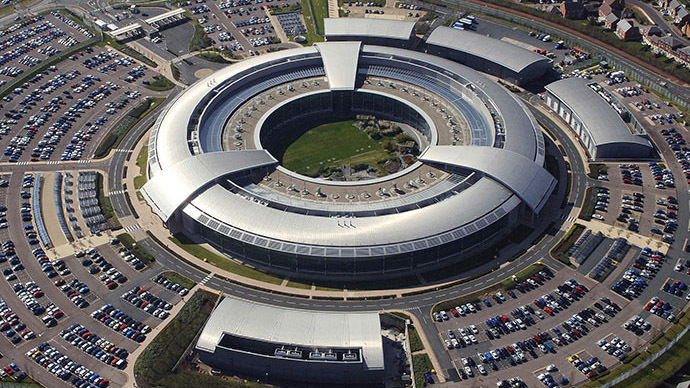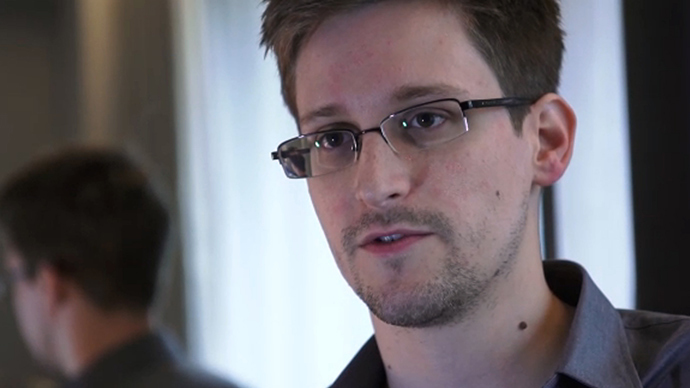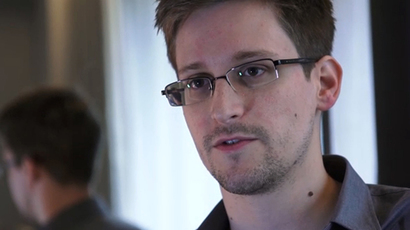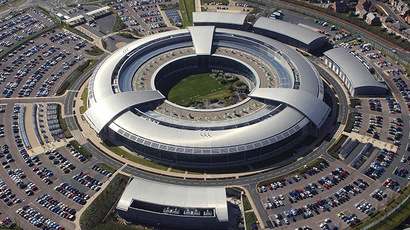Dyslexic spies: GCHQ’s secret strategy to tackle terrorism and espionage

Britain’s government surveillance agency is utilizing 120 dyslexic and dyspraxic spies to tackle global terrorism and foreign espionage, it has emerged.
Harnessing their ability to process and analyze complex data in a reasoned and analytical manner, Britain’s Government Communication’s Headquarters (GCHQ) recruits specially sourced dyslexic and dyspraxic intelligence officers it suggests are neuro-diverse.
In an exclusive interview with the Sunday Times, a GCHQ officer said “neuro-diverse” individuals can bring “additional value to the full spectrum of roles and jobs across the department.”
While many dyslexic individuals have difficulty reading, writing and comprehending words, they often have a high aptitude for isolating facts from complex patterns and events. Approximately 10 percent of citizens throughout the UK suffer from dyslexia, while 5 percent of UK children are dyspraxic – a condition that affects co-ordination.
Dyslexics’ aptitude for code-breaking is highlighted by the historical case of Alan Turing. A dyslexic cryptanalyst and mathematician who worked for the British government during the Second World War, Turing succeeded in breaking the Nazi’s clandestine Enigma code. While the importance of his work remained unacknowledged for decades, GCHQ has learned from Turing, and regularly recruits dyslexic and dyspraxic staff to work against cybercriminals, foreign spies and terrorists.

Matt, a 35-year old chairman of GCHQ’s dyslexic and dyspraxic support community, told the Sunday Times that people who possess neuro diversity generally demonstrate a “spiky-skills profile”. This means that “certain skill areas will be below par and others may be well above,” he added.
“My reading might be slower than some individuals and maybe my spelling is appalling, and my handwriting definitely is... but if you look at the positive side, my 3D spacial-perception awareness and creativity is in the top 1 percent of my peer group.”
Despite the clandestine nature of much of GCHQ’s work, the spy base claims it is attempting to modernize. The long-held stereotype that it covertly recruits spies at Britain’s elite universities is no longer relevant, it insists.
In an effort to move with the times, the Cheltenham-based listening post has reportedly allocated 80 intelligence officials to approach 20 primary schools and secondary schools throughout Britain in an effort to encourage children to pursue science, engineering, mathematics and technology-based subjects. The surveillance agency is allegedly keen to cultivate interest in such subjects, particularly amongst female pupils.
GCHQ says its demand for such skills - and that of the commercial sector in general - considerably eclipses the number of graduates qualified in these fields.
Inside GCHQ
The spy base currently employs 5,300 staff. At present, a third of its intelligence analysts are working to combat terrorism emanating from the Middle East. The threat stemming from Syria, particularly from the Islamic State (IS, formerly ISIS), is currently the most serious, a GCHQ official claims.
The official suggests that in comparison with “pre-Arab spring levels,” the amount of counter-terrorism support GCHQ offers the UK government has increased “roughly tenfold.” The spy base’s work also entails “combating cybercriminals, state-led cyber espionage and political activists known as ‘hactivists’,” according to the official.
The government surveillance agency is reportedly divided into two main sectors, the CESG and Sigint. The CESG, or national technical authority for information assurance, assists in safeguarding Britain’s national security and tackling potential cyber-threats. Sigint, or signals intelligence, offers direct support to Britain’s military, police and secret services.
GCHQ starts its yearly autumn recruitment program on Tuesday, and is reportedly hoping to hire as many as 80 new apprentices aged 18 and upwards.

Civil liberties groups and privacy rights campaigners throughout the UK and beyond have questioned the legitimacy of GCHQ’s invasive practices. They point particularly at an alleged mass surveillance program called Tempora. Documents leaked to the Guardian by whistleblower Edward Snowden allege the program facilitates UK intelligence officials' access to private email messages, information entered on social networking sites such as Facebook and telephone calls. While UK authorities have not denied the existence of the program, they are unwilling to comment on its operation.
Global hacktivist collective Anonymous also criticize GCHQ, emphasizing the government spy base persistently compromises Britons’ privacy rights.














